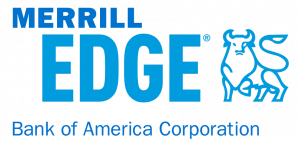When looking to grow a small business, it’s critical to offer retirement benefits for your employees so that they can save for the future. A 401(k) plan allows you and your workforce to save up to $61,000 annually through tax-free salary deferrals, employer matching, and profit sharing. Choosing the best 401(k) provider largely depends on the level of plan management needed, the costs and fees involved, the customer service required, and the investment options available.
Based on our evaluation, here are the eight best 401(k) companies:
- ShareBuilder 401k: Best overall for digital-only low-cost 401(k) plans
- Merrill Edge: Best for simple pricing and full-service business banking
- Wells Fargo: Best traditional 401(k) provider with a highly-customizable plan
- Guideline: Best for multiple 401(k) options and regulatory compliance assistance
- Vanguard: Best for companies seeking the widest range of low-cost mutual funds
- Fidelity: Best for owners looking for low-maintenance target date funds
- Charles Schwab: Best for investors who want low to no fees on various trades
- Employee Fiduciary: Best for small businesses looking for personalized service from dedicated account managers
Best 401(k) Companies At a Glance
Site Builder | Online Only | Setup Fees* | Annual Fund Fees/Other Fees | Admin Fees |
|---|---|---|---|---|
Yes | Starting at $150 | 0.75% on average | $25 to $190+ per month | |
No | $390 | 0.52% (employee paid) | $90 per month | |
No | Varies | 0% to 1.25% | 0.25% to 2% | |
Yes | $49 to $129 per month + $8 per employee | None | None | |
Yes | None for individual, simplified employee pension (SEP), and Savings Incentive Match Plan for Employees (SIMPLE) individual retirement accounts | $20 or $25; higher on small plan 401(k) | Not a plan administrator | |
No | None | Various fees based on account | 1.5% to 2% annually on average | |
No | None for most plans | Up to 1% | None for most plans | |
Yes | $250 or $500 | Up to 0.08% custodial fee | $500 or $1,500 annually | |
*Setup fees may vary by location, business type, and plan type. The value listed here is the most typical setup fee cost. Visit the provider websites for more specific pricing information.
ShareBuilder 401k: Best Overall for Digital-only Low-cost 401(k) Plans

ShareBuilder 401k is our choice for the best overall 401(k) company due to its low-cost, digital-only retirement plans, making it easy for businesses of all sizes and locations to open an account. Whether you have just one employee or a whole corporation, it has a plan that can meet your needs.
It offers four different 401(k) plans: Solo 401(k), Safe Harbor 401(k), Traditional 401(k), and Tiered Profit-sharing 401(k). Administration fees start as low as $25 for Solo 401(k) plans and $190 for Tiered Profit-sharing plans. ShareBuilder 401k is an excellent option for small businesses looking to get started with 401(k) as they grow.
Its offerings include the lowest-cost, best-in-class investment options available. With it, small business owners can set up a plan online for a flat fee and start investing immediately.
The company’s customer service can be reached via the toll-free phone number from 9 a.m. to 8 p.m. Eastern time Monday through Friday or via email.
Merrill Edge: Best for Simple Pricing & Full-service Business Banking
Merrill Edge is another company that provides excellent 401(k) plans with a full-service business banking experience through its Bank of America partnership. Bank of America, one of our best banks for small business, offers one of the best small business checking accounts on the market. So, if you’re looking for excellent business banking to go with your investment services, the Merrill Edge–Bank of America partnership can be a one-stop shop for all your needs.
Merrill Edge provides straightforward, up-front pricing, with a one-time setup fee of $390 and a monthly administration fee of $90. It offers 401(k) plans, including individual 401(k), small business 401(k), and several IRA plans, including SEP and SIMPLE. Its customer service is available by phone from 8 a.m. to 5 p.m. Central time Monday through Friday or in Merrill Edge and Bank of America branch locations.
It’s a great online companion to Merrill Lynch, which typically caters to high-income investors. Through Merrill Edge, you can open smaller accounts that are more cost-effective and widely available than Merrill Lynch provides, yet those accounts are still outstanding retirement products.
Wells Fargo: Best Traditional 401(k) Provider With a Highly Customizable Plan

If you’re looking for a Traditional 401(k) provider with a wide range of plan options, physical locations, and a full range of banking products, Wells Fargo is an excellent choice. It offers a full range of 401(k) investment options and services. Fees aren’t readily available on the company’s website but, generally, they’re in line with other national providers.
In addition to the 401(k) products, Wells Fargo offers business banking and commercial lending options. It has business checking and savings accounts, credit cards, merchant services, payroll services, and other business resources.
If you need commercial lending products, you can get several types of small business loans through Wells Fargo, including business lines of credit, Small Business Administration (SBA) loans, commercial real estate loans, and healthcare practice financing, among others.
It also has 4,900 retail banking branches in 36 states and online access and customer service. The company’s toll-free customer service line is available 24 hours a day, seven days a week.
Guideline: Best for Multiple 401(k) Options & Regulatory Compliance Assistance
With three available plans to meet the varied needs of different sized businesses, Guideline provides multiple 401(k) options for your company. Its base-level option, the Core plan, offers payroll integration and automated recordkeeping. It allows Guideline to act as your 3(38) and 3(16) fiduciary and handle specific IRS and United States Department of Labor (DOL) reporting and filings.
The mid-tier plan, Flex, offers all of Core’s benefits and allows you to open either a safe harbor 401(k) or traditional 401(k) plan. You also get profit sharing and vesting schedules, and Guideline assists you by conducting IRS nondiscrimination testing for traditional plans.
The top-tier option, Max, gives you the benefits of the two previous plans plus custom features like comparability profit sharing, a dedicated onboarding specialist and client relationship manager, and support for controlled group plans.
Guideline offers email and phone support, and its service can be reached by phone from 6 a.m. to 4 p.m. Pacific time Monday through Friday. It’s a great option for multiple plans with low-cost funds, excellent customer service, and simple management.
Vanguard: Best for Companies Seeking the Widest Range of Low-cost Mutual Funds
As a company with five of the top six largest mutual funds globally in 2021, Vanguard is a popular choice for a 401(k) provider. Its largest fund, Vanguard Total Stock Market Index Fund, had more than $1.3 trillion in funds. This was approximately four times larger than its nearest competitor, Fidelity 500.
Vanguard offers access to several types of 401(k) and IRA plans, including an individual 401(k) plan that’s our choice for the best solo 401(k) plan on the market. It also has a small plan 401(k), in addition to SEP-IRA and SIMPLE IRA plans.
This provider offers simple, straightforward plans with options to meet the needs of businesses of all sizes. You can contact Vanguard through a toll-free phone number or its company website to start the process.
Fidelity: Best for Owners Looking for Low-maintenance Target Date Funds

Fidelity is another large mutual funds provider offering securities brokerage services and business and personal banking, including credit cards and business loans. It’s the best target date funds provider for 401(k)s because of the 14 Freedom Funds plans the company offers. They have targeted retirement dates in five-year increments ranging from 2025 to 2065. The funds adjust automatically as the targeted retirement date gets closer.
Small business owners can access 401(k) plan administration and recordkeeping services, a full trading platform, investment advisory services, and personal and business banking. Many of these services come from different business units but can all be provided by Fidelity as a full-service firm.
You can reach the company through online chat, available Monday through Friday from 8 a.m. to 10 p.m. Eastern and 9 a.m. to 4 p.m. ET Saturday and Sunday. An automated virtual assistant and a toll-free phone number are also available 24/7. You can also stop by one of more than 200 investor centers available across the country.
Charles Schwab: Best for Investors Who Want Low to No Fees on Various Trades

Charles Schwab offers a full-service 401(k) plan customized to your company with zero dollar trading fee, making it an excellent option for a low-fee provider and 401(k) owners wanting to trade stocks or bonds in their accounts. You also have the option to add investment advisory services to an existing 401(k).
Because Charles Schwab has a broker-dealer and banking subsidiary, it can provide a full range of financial services. It also offers proprietary mutual funds and ETFs to plan participants and other investment options.
The company offers individual and business 401(k) plans, SEP and SIMPLE IRAs, personally designed benefit plans, and company retirement accounts. It has a plan for your company, regardless of how many employees you have.
You can call a toll-free number to start the process or stop by one of 360 Charles Schwab branches across the United States.
Employee Fiduciary: Best for Small Businesses Looking for Personalized Service

Employee Fiduciary is a 401(k) plan administrator that caters to small businesses of all sizes. Every company that signs up for a 401(k) plan with Employee Fiduciary will go through a plan design consultation to create one that meets the company’s goals and budget. Companies with existing 401(k) plans will also benefit from Employee Fiduciary’s plan conversion services as they move to this new provider.
The company is a bundled 401(k) provider, meaning that it provides all the administration services needed, including asset custody, participant recordkeeping, and third-party administration. On its website, you can compare Employee Fiduciary’s fees to more than 40 other leading 401(k) providers, or you can request a no-cost fee comparison for your current plan.
Employee Fiduciary offers a detailed fee schedule with startup fees and annual base and custodial fees listed on its website. Startup fees range from $250 to $500, with annual fees at $500 or $1,500, plus 0.08% annually in custodial fees.
You can reach the company through a web contact form or by phone at a toll-free number.
How We Evaluated the Best 401(k) Companies
When comparing the best 401(k) companies, we considered:
- Setup fees charged
- Annual fees charged
- Types of retirement accounts available
- Types of investment funds available
- Online-only or physical locations available
- Ease of account setup and management
- Customer service
- Customer reviews
Bottom Line
For small business owners looking to add retirement services to their companies, the 401(k) providers listed here can provide you with excellent investment accounts with a wide range of benefits. Whether you’re a sole proprietor or a corporation with hundreds of employees, one of our recommendations will meet your retirement account needs. Compare the providers and their strengths and choose the one that best fits your company’s size and needs.

